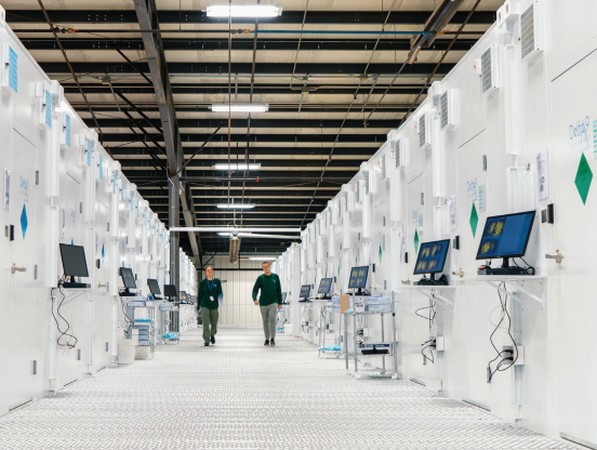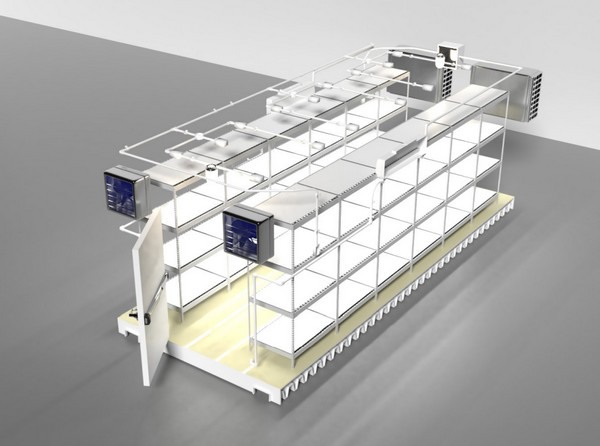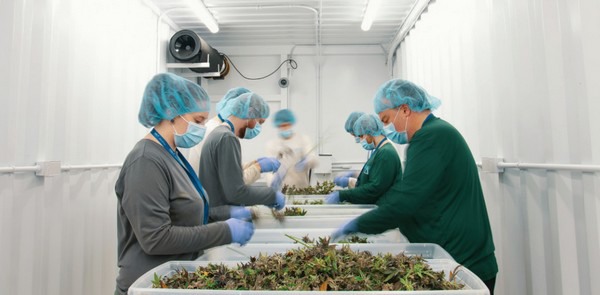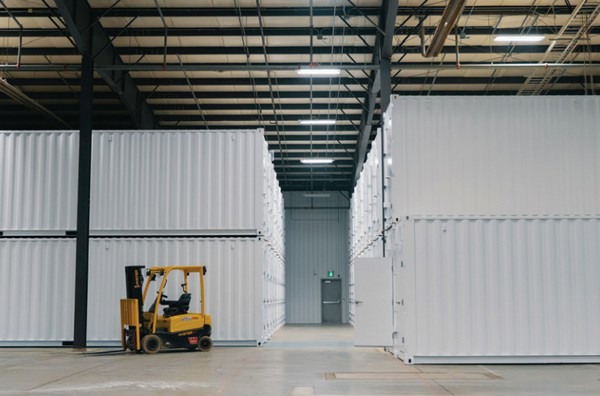“We wanted to take a different approach than many other growers in the Canadian marketplace, who are building massive greenhouses. But when it comes to cannabis, a very high level of control over the growing environment is very important. This control is much easier in a small, confined area,” says John Arbuthnot, CEO of Delta 9 Cannabis. As one of the oldest cannabis companies in Canada, they became the fourth licensed medical cannabis producer in 2013. With their experience as growers operating 95,000 square feet in Winnipeg, they realized the benefits of grow pods. Therefore, they decided to add a new segment to their business in 2017. “In these past five years, we have noticed a lot of interest from growers for these types of modular growing systems.” 
The benefits of grow pods
Arbuthnot explains that the Delta 9 grow pods are essentially retrofitted shipping containers. In the container, they install customized wall panels, electrical lighting, HVAC, and security systems. The result: small cultivation units that are modular, scalable, and stackable. Arbuthnot says that small and confined growing areas provide benefits compared to large greenhouses. “You have a very high level of control over your growing environment. You can fine-tune the factors that contribute to product quality, such as temperature, humidity, light intensity, and CO2 saturation. What gives the grow pod such value to growers is the almost laboratory level of control while also being able to grow at scale. You could have hundreds of the units within a warehouse space, for example, and you can effectively scale with your customers.” At Delta 9 Cannabis, they are currently growing in 297 grow pods.
In addition to providing these benefits, the grow pods also provide compartmentalization of risk. This is a major advantage for growers, with cannabis being prone to infestation and disease. “In small and confined areas, contamination is much less likely to spread through an entire facility. If there is an instance of contamination, the crop you are losing can be quarantined. In such a case, your loss might be thousands of dollars instead of the millions you could lose when contamination spreads across a large greenhouse,” says Arbuthnot. 
International interest
Initially, Delta 9 saw the bulk of their clientele coming from the Canadian marketplace. “Of course, a surge of the demand centered around the Canadian legalization of adult-use cannabis.” Now that the Canadian cannabis market is maturing, Delta 9’s opportunities have become more internationally focused. “Demand is now also coming from the United States, Europe, and Australia. In these developing markets, cultivation facilities are now being established. We are able to leverage our experience in the Canadian marketplace and take that into other jurisdictions. Whereas growers can run into the challenge of grow environments being different in different locations, this indoor standardized setting carries a lot of benefits.”
Moreover, it’s not just cannabis growers that are interested in the benefits of grow pods. Delta 9 has been approached by other crop growers, universities, as well as rural communities looking for sustainable farming. “Especially in today’s environment of high fuel costs and inflation, it is expensive to import produce from other towns, provinces, or countries. Grow pods can create food sustainability in these rural areas.”
Arbuthnot explains that this broader customer base does come with new challenges for the company. “Delta 9’s expertise is towards cannabis. Therefore, it has been a challenge to develop alternative systems that are suitable for bell peppers or microgreens, for example. As these new projects have approached us, we have partnered with other groups that are more specialized in those functions to develop those systems.” From there, Delta 9’s challenge is adaptability. “Some farmers want to use the units outdoors, or we need to develop units customized for laboratory usage. We try to tailor our grow pods to each project so that the units satisfy our clients’ personal needs.”
For more information:
Delta 9 Cannabis
www.delta9.ca
